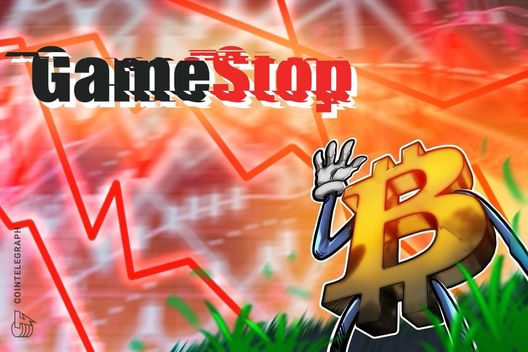

GameStop's shares experienced a significant downturn, plummeting 22% on Thursday, June 12, 2025, after the video game retailer announced it was increasing its capital raise to $2.25 billion. The initial plan, revealed on Wednesday, June 11, was to raise $1.75 billion through a convertible note offering. The expanded offering signals a deeper commitment from GameStop to its Bitcoin treasury strategy, sparking both interest and concern among investors.
The company intends to use the net proceeds for "general corporate purposes," including investments aligned with GameStop's investment policy and potential acquisitions. This announcement has led to speculation that GameStop may be planning to further invest in Bitcoin, adding to the 4,710 Bitcoins already purchased between May 3 and June 10, 2025, for approximately $513 million.
The decision to pursue a Bitcoin-focused strategy has drawn comparisons to Strategy, formerly known as MicroStrategy, which has become the largest corporate holder of Bitcoin through similar debt financing methods. While Strategy has seen its stock price rise due to its Bitcoin investments, it has also experienced significant volatility.
Several factors contributed to the negative market reaction. On Wednesday, June 11, GameStop's shares had already fallen 5% after the company reported a 17% year-over-year decline in first-quarter sales, with revenue dropping to $732.4 million, which missed analyst expectations. The announcement of the initial $1.75 billion note offering triggered a sharp selloff, and the subsequent upsizing of the offering to $2.25 billion exacerbated the decline.
The convertible senior notes, due in 2032, will be sold privately to large institutional investors and carry a 0% interest rate. GameStop has also granted initial purchasers the option to buy an additional $450 million in notes, potentially raising the total to $2.68 billion. The company anticipates the sale closing on June 17, 2025, and expects to receive approximately $2.23 billion, or $2.68 billion if the additional notes are sold, after fees and expenses. The notes have a conversion rate equivalent to $28.91 per share, a 32.5% premium over the average June 12 trading price. GameStop cannot redeem these notes before June 2029 unless specific conditions are met, though investors can request redemption in 2028 or convert early under certain circumstances.
Since GameStop confirmed its initial Bitcoin purchase on May 28, its shares have fallen by 18.5%, with the recent after-hours drop erasing all gains made since March 25, when the company first announced its plans to invest in Bitcoin. This contrasts with many other public companies that have seen their share prices increase after announcing Bitcoin investments.
Analysts and shareholders have expressed concerns about GameStop's strategic shift. Wedbush analyst Michael Pachter noted that the stock trades at a higher premium to its cash than Strategy trades to its Bitcoin holdings, questioning whether further Bitcoin purchases will drive the stock price higher. Pachter has also described GameStop's stock as being driven by "greater fools."
Despite reporting a $44.8 million profit in the first quarter, a reversal from a $32.3 million loss in the same period last year, GameStop's declining revenues and shift towards digital assets have created uncertainty among investors. The company's strategy of accumulating Bitcoin, while potentially lucrative if Bitcoin's value increases, also introduces greater risk and volatility.